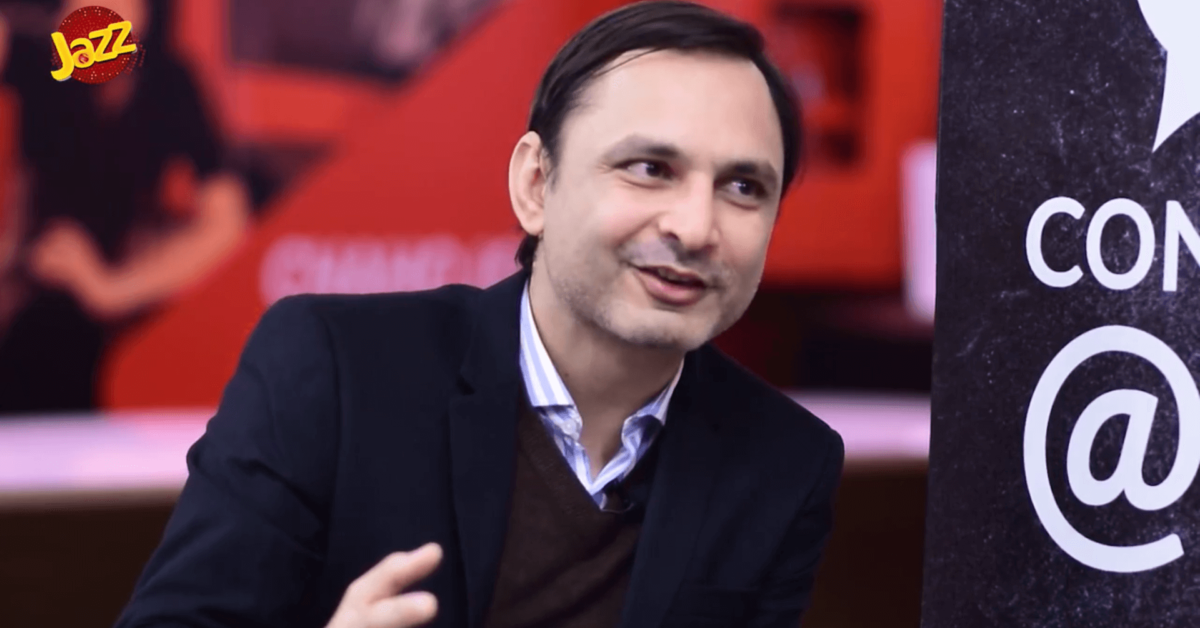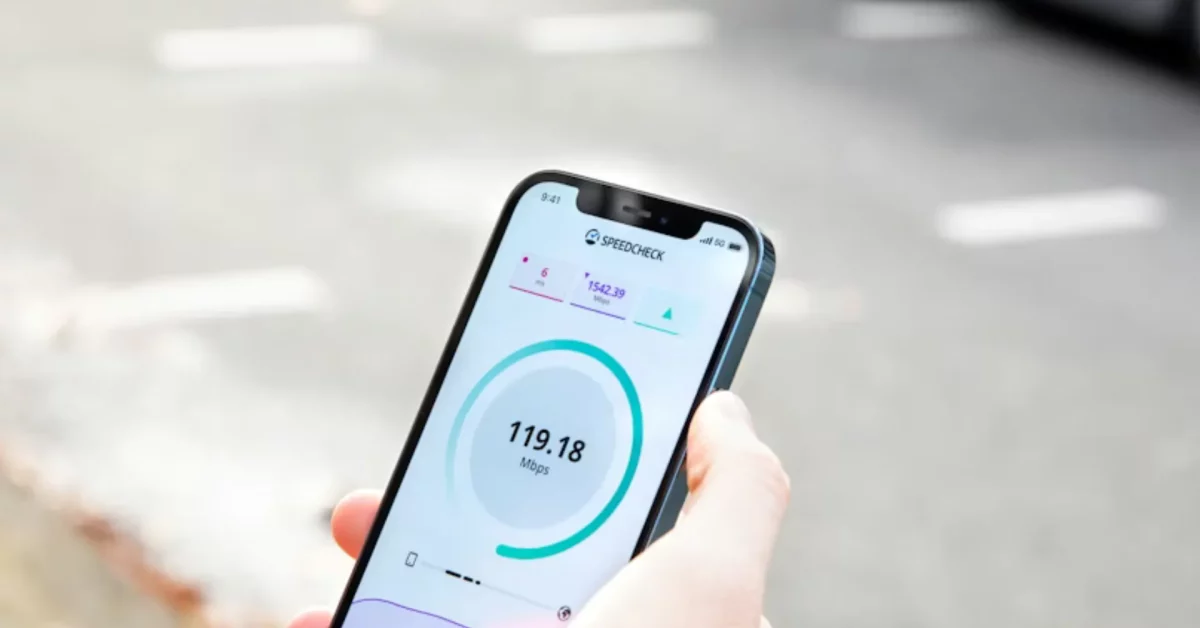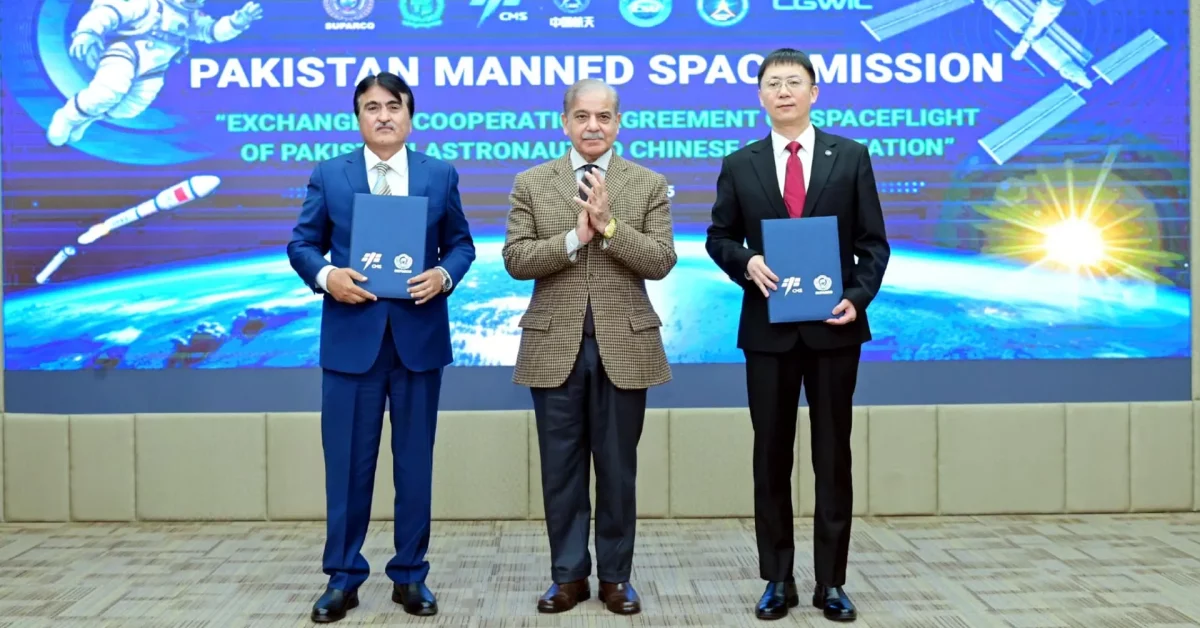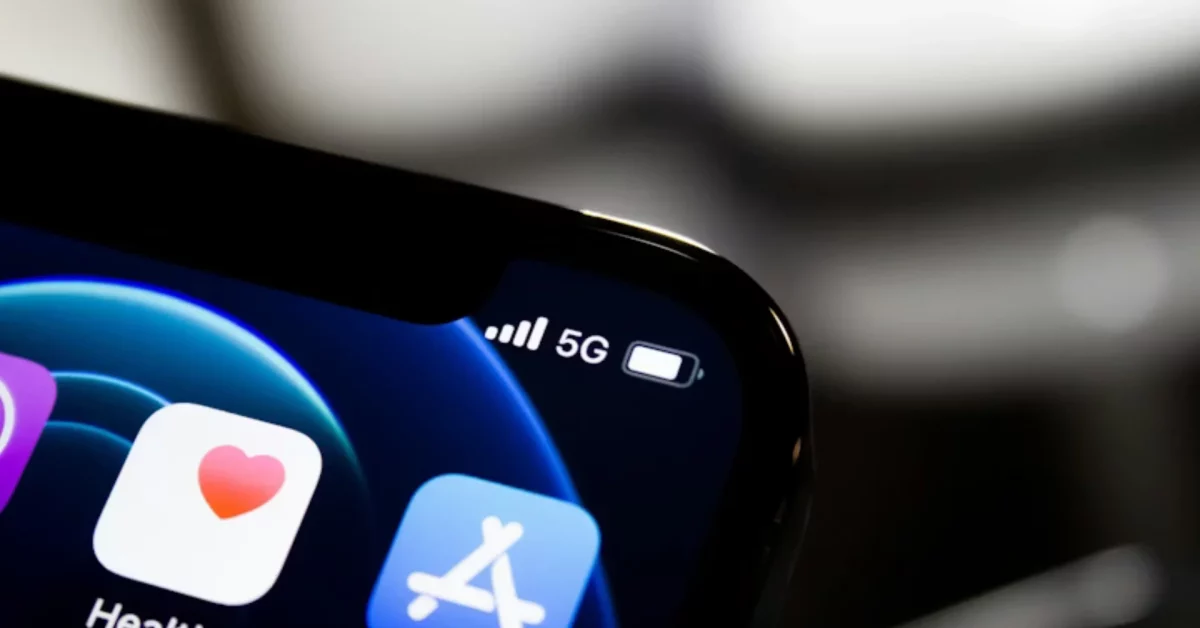
Top Startup Incubators and Accelerators in Pakistan
November 25, 2019
Top 10 Apps to Download in Pakistan
December 2, 2019Digital Payments and Entrepreneurship | Conversations@Jazz
This Conversations@Jazz is with the founder of Bykea; co-founder of Daraz, and the former CEO of SNL Financial (presently S&P) and Tehzeeb. Muneeb Maayr speaks to us about the importance of digital payments and entrepreneurship.
Bykea is an on-demand ride-hailing, food, logistics, and payments company focused on leveraging motorcycles in this emerging economy to transport people and parcels in the fastest and most cost-efficient manner. The main idea behind Bykea was combining two aspects available to middle-income families. He combined smartphone technology and motorbikes and leveraged them for income generation.
Speaking of digital payments, Muneeb discusses taxation challenges that the country faces and how essential it is to convert to digital payments. Pakistan is one of the most under-banked countries in the world with only a fraction of mobile wallets. He suggests that to make digital easier than cash the whole ecosystem must be upgraded. Muneeb further discusses that the leadership hybrid between creative and technical expertise is missing. He states, “the notion of inventing, the passion for creating new journeys, new designs, or user experiences will allow this bridge to come together and for people to create things which are relevant to the public.”
The discussion ends with Muneeb talking about creating something that lasts for generations to come. What matters is what you have produced to change people’s lives that live beyond your own lifespan. He also said that the only thing that is relevant is creating things that are intergenerational and create an impact.
Aisha: Hi, this is Aisha Sawari and welcome to conversations at Jazz. We’re here with Muneeb; Muneeb is a CEO of many things and sort of started many startups, you could call him a serial entrepreneur in Pakistan. Thank you, Muneeb, for being with us here today.
Muneeb: Thanks for inviting me.
Aisha: So, Muneeb, first question – you are a self-professed Pindi boy, right, and how important was the journey, taking to the street, taking public transport and a lot of smaller cities and smaller streets in to creating some of the businesses that you did, like you’re a quintessential Pakistani CEO. How important was that rootedness in your country that helped you create several companies that helped Pakistanis?
Muneeb: I think had I not, had my parents not given me the freedom to hop on to wagon no.1 which runs from Saddar, Rawalpindi to all the way to Islamabad. Had I not had that liberty I would not have understood, the markets and you have to have empathy to the population you’re catering to because particularly if you come exposed backgrounds, you tend to live in this shell which happens a lot typically who have exposure to the west. So, I think it was this hybrid between exposure and really breathing and loving things like street foods, I have to no qualms like I don’t get sick. I have been sick so many times and my body has gotten used to of it. But have no qualms to explore in a city, like Raja Bazar, to finding where the best imported Russian Jam is going to be because a stock of it available.
Aisha: I think I know exactly where that is. Some of the best things in our country are found in places where wholesome items are available, you know you can get the latest movies. Do you remember with the DVDs, Titanic used to be out there but it was here right? So, our people are very ingenious, they are very quick. You have been CEO of something in the food industry, you’ve been obviously been the CEO that combined cell phone or the smart phone or the bike, right? So, a lot of people think digital is something too big and you’re somebody who catalyzes two things together, at least two or more things together. Bykea, where did the idea come from because it is huge now especially because now use it from metro to their homes, you know short rides and all of that. Where did the idea come from and where did the idea for combining smartphones and bike come from?
Muneeb: So, Aisha, what I think it’s not that huge right now to be candid with you. I think it’s still very nascent, we’re only just beginning. I think every 1 minutes you see a Bykea around or in 10 Bykeas in one minute that’s when it becomes huge because if you go to, for example, Jakarta or Ho Chi Minh City, that’s when you realize the power of these networks, so I think that’s the aspiration.
Aisha: Am I wrong if I say if I call for Bykea it will in about 15 minutes.
Muneeb: Yeah, so probably in Islamabad it will be 10 minutes or so in Karachi our network density is stronger, it’ll be under 5 minutes.
Aisha: Okay, so that’s huge.
Muneeb: Islamabad and Rawalpindi are very geographically spread out cities and getting that network density is a lot more problematic unlike in Karachi. But I think we’re getting there, you know we haven’t taken the battle big in this city, it’s going to happen January onwards.
Aisha: How many women use Bykea because I would like to hop on because sometimes the traffic is insane.
Muneeb: So, I think one thing that we recognized was that we build a plat and ultimately when we get reliability on that platform, we can also try building trust on that platform. We can’t drive behavioral change immediately.
Aisha: It has to be economically viable and also culturally.
Muneeb: It is economically viable because it’s not that hard for women to go out of their prisons that they are in, unfortunately as a nation for instance if you go to South East Asia, you’ll see all the bazaars and markets are run by women.
Aisha: They are in public spaces everywhere.
Muneeb: Yeah, and men will be faring things out and the women will be running retail. Unfortunately, we have been unable, not just in Pakistan and in India, we’ve been unable to liberate our women in a strange way put more stress on single bread earner in the family which is the male and so you have intense pressure and of course economy is impacted by that as well.
Aisha: And it leads to a lot of social and cultural issues like violence and that perpetrates the cycle of patriarchy.
Muneeb: Coming back to your question, on why Bykea and sort of meshing these two. there are 17 million motor bikes in the country, 5 or 2 million added every year, right? So, if you talk about the supply side, it exists on the motorbike category not the car category. So, on the car category, so the country is rich enough to have tens of millions of cars. So, its talk about logistics and payments ultimately.
Aisha: It has got to be the bike.
Muneeb: It has got to be the bike. And the smartphone proliferation has really allowed us to see that, if you’re talking about the middle class or the lower middle class. The two assets that they really have are the motorbike and the smartphone. It’s how you leverage them for income generation and that was the premise, right? And I think obviously we’re at the operational level but ultimately, we also want to save for payments so this week, in fact, in Karachi on Friday we are launching Bykea cash, which is really converting cash to digital.
Aisha: How did that come about because I know you have partnership with Jazz for Jazz cash and was that a sort of like next, like you used to get a model and create one yourself?
Muneeb: I think the strategy is that the state in Pakistan has been unable to recognize why M-paisa succeeded in Kenya. you probably have some experience.
Aisha: Yeah, I grew up there.
Muneeb: You should be I think the biggest advocate I am going to speak about which is, I think we don’t get it, I’ll talk about it in a sec.
Aisha: You talked about the fintech model and financial inclusion and you mentioned Kenya and that’s a place where I grew up. When I was growing up it was a very amateur market, phones weren’t there and there was hardly any connectivity. When I went and visited back in 2015, I couldn’t pay for anything without using my phone and it was almost like cash was not a good thing. Kenya and a lot of African countries have leap leapfrogged, so they went from being really amateur to being really financially inclusive, specially the women, how’d that happen?
Muneeb: I think the last I heard almost sixty percent of the payments happened through digital channels like M-Pesa, right? And the question is that why did that not happen in Pakistan? Today all these payments, these money transfer payments have facilitated by a retailer. And fundamentally the decision makers in Pakistan, particularly at the state level did not recognize how to tax. So, I’ll give you an example, let’s say a hundred rupees is topped up in to telco credit in Kenya so, and I am giving you an example to make it like relatable. Today, what happens in Pakistan is that 30 rupees is immediately extracted in tax. So, when I want to transfer you micropayments, I would never do that because why would I shave of thirty percent of my income or the monetary value that I have before making a payment to you. So, in Kenya what happened is that they said hey lets tax only when a call is executed or when the internet bundle is consumed and otherwise charge two rupees out of a hundred. So, let’s say there are fifty transactions multiply by two three hundred-rupee duplicates. So, the state ends up making insane amount of tax money as opposed to that one fixed 30 rupees and that proliferated the ease of doing these micro payments proliferated digital payments not on not just smart phones. We keep on repeating smartphone, smartphone.
Aisha: You don’t see the smart phones so much there and what I find really interesting is that you take the trust of the consumer away when you tax immediately. you know when I get 30 percent shaved of my hundred rupees, I don’t trust who took it, I don’t trust the telco, I don’t trust all this technology I cannot understand and I don’t trust the government either. So, suddenly you’re dissuading people to use tech, you’re dissuading people to fintech particularly. Isn’t that tragic?
Muneeb: We recognize that, either they are not going to do it, which is a problem for the country, problem for taxation in the country. We talk about how to fix tax; you literally need one decision tomorrow to fix it. But I think what we saw was that Pakistan was the least banked country in the world and no one beyond Jazz Cash & Easy Paisa has really been enabling cash to digital. Of course, you can cater to the bottom of the pyramid, which today sells to salaries for example to their accounts. The tier one category doesn’t really care because they are banked and they assume that everyone is going to get these smartphones and do these digital banking transactions and they forget about the middle tier, where, which is where the wallet game wallet game will ultimately play out. So, our premise around this is that listen, there will always be, for the next few years, some cash transactions, how can we facilitate financial institutions whether it be banks or telcos.
Aisha: But banks have come in their own way because they make money on the float, right? So, they don’t really like the fintech idea, so they are also not evolving into this vertical as well.
Muneeb: You shouldn’t expect them to, where have they in the world? Nowhere. I think ultimately, it’s incumbent upon intermediaries, the telecoms or telecoms companies to really come up with a solution but I think there needs to be structural changes and I keep hearing that the State Bank needs to do something but not even telling them what to do. Right? So, everyone just says there is something wrong.
Aisha: But I think it’s the philosophy and we’ll move on to something very important. The philosophy is to squish the golden goose, to kill it, as opposed to let it keep laying and to take money from the economy that is generating the income and creating productivity. Very important, let’s go to entrepreneurship, because you’re saying, “Why would anyone?” and entrepreneurship is where you strategically think about what needs to be fixed and you go fix it. You are a believer in the fact that an entrepreneur is not somebody who is particularly smart. You feel that anybody can be an entrepreneur as long as they research and they do subject matter expertise. You have about five industries in which you’ve done subject matter expertise and gone ahead and created companies, including Daraz which had some recent success and congratulations for that. Why are students in Pakistan, for example, so inhibited to do what you did? Everybody talks about the ecosystem and the taxation challenges and all that and you went ahead and did all of these. What’s the difference between what you did versus the complainers?
Muneeb: I think the hybrid between the creative and the technical is missing. So, I’ll give you my background, even though I’m not a software developer, per se, and I don’t have a computer engineering background, I had a banking or economics background, but I haven’t allowed that to inhibit or pigeonhole myself and I’ve allowed my liberal art education and the love of art to interplay to help create journeys or products. I think you have to do that with this mindset based on who you are addressing. We keep talking about 220 million people in the country and yet everyone is building for Arts or English, it just baffles me, like, who are we fooling here? Who are we trying to building this for? So, I think it’s all nascent, it’s all beginning and the good thing is people are beginning to talk about it, people are beginning to get interested in this. But I think the notion of inventing, the passion for creating new journeys, new designs or new user experiences will allow this bridge to sort of come together and for people to create things which are relevant.
Aisha: But, most fundamentally, ask yourself who you’re creating it for, right?
Muneeb: Right.
Aisha: So, language barrier you talked about as very important. What are some of the innovations you’ve created because you created for the people, like Daraz for example, you go onto the site, it’s very plain, you kind of get hooked up and thank you for making the people in my family hooked onto online shopping.
Muneeb: So, to be candid, I don’t think Daraz is my brain challenge in terms of user experience. So, I led that business because I was a part of Rocket Internet. So, I think from a user journey perspective it’s perhaps more like Bykea. In fact, today, if you look at Daraz, it’s literally a clone Lazada which is the clone of the Alibaba sort of ecosystem, which I think, honestly, is great on one side, so I think it’s 70% great but 30% terrible because it’s built from the mindset of a country where there are 6-7 bank accounts per user. So, in China, there are 6-7 billion bank accounts so, everyone just does not think about cash on delivery, everyone can just search and type in their own language.
Aisha: Why is Pakistan so big on cash on delivery and how can we fix that?
Muneeb: So, first let’s fix digital payments. Digital payments will not be fixed by giving discounts. Digital payments will be fixed by essentially making digital easier than cash and it’s a hard proposition, because to be honest with you, there’s nothing really wrong with cash except when people are not together. So, what are you really solving for? You’re solving for distance. I think we got to solve some of these regulatory taxation elements to enable micropayments to happen, that’s one, and that ultimately will happen through telco channels. I’m completely negative on this Paytm strategy of throwing off discounts into it and people will adopt, they will only adopt short-term, long-term you won’t have a sticky cohort.
Aisha: So, if you have to convince me, for example, just somebody who gets a salary in the bank at the end of every month to shift 100% on digital for everything, what would you change in my life? Assuming you have a magic bullet for everything.
Muneeb: I would perhaps enable you to, I’m trying to not give out a trade secret.
Aisha: And I’m trying really hard to you to do that.
Muneeb: So, I think the interplay of the of cheque based immediate resolution to a query and payments is the future.
Aisha: So, the less time I spend doing things, the better it is for me to switch to this.
Muneeb: Yeah, I mean you should not have to worry. You should be able to pull me from your contact list and make a payment and never have to worry about it. But, make a payment not into an IBAN number. Think about PayPal, why did PayPal succeed?
Aisha: It was an email.
Muneeb: It was an email address and people banked in America it’s just that I didn’t know your routing number, why do I need to know your routing number?
Aisha: Absolutely. So, make it simple. Lastly, if you had three wishes to change anything in Pakistan, and I know one of them should be tourism, because you’re the person actually, Muneeb, who convinced me to go up North, like you’re the first person at that time, I think, when you get married and you had your honeymoon there, hardly people would go there and the pictures were just fascinating and amazing. So, I’m sure, perhaps, your next thing should be tourism, but if you had three things to do, to change Pakistan or to change people’s lives in terms of social impact, what would those three things be?
Muneeb: I think one, I would not try to spend hundreds of millions of dollars or a billion dollars on an airport but just try to fix the first 15 minutes of getting into this country and the 15 minutes of getting out of this country, and how do you do that? You basically make sure you get the queues right, you have people who smile and don’t grill you when you’re entering this country, you have free Wi-Fi and you have sims as soon as you get out and currency exchange in shops and plants and fountains at the airport. Because the decision to invest in Pakistan is made in the first 15 minutes.
Aisha: I completely agree, especially at the baggage carousel; suppose I’d even decide to invest in Pakistan, the moment somebody elbows me out of the baggage carousel part, I’d just hate the experience. Secondly?
Muneeb: Two, I would tell the Prime Minister of the country to stop worrying about tax and literally just change the way they tax instead of taxing at telcos, tax at consumption to enable digital payments and actually forget quadruple lighting, probably go 50x in terms of tax collections from the country so do digital payments there.
Aisha: And third?
Muneeb: And third, which is something that most people don’t recognize, is that Pakistanis cannot search and type in their own language and we can never be Vietnam, we can never be China, we can never be any of these real developing countries. We keep saying India, forget India, India’s a bad example. If we need to leap forth the way Vietnam did and Vietnam’s GDP today is about 230 billion, India’s is 290 and Vietnam has been able to do this.
Aisha: In stealth mode; they don’t even brag about it.
Muneeb: And you have to have an educated audience and if more than half your population is under the age of 20 and the future of their education is gonna be digital and they can’t search and type in their own language-
Aisha: That’s a barrier they’re never going to overcome. So, how do you fix it?
Muneeb: You start mandating Urdu keyboards when people are very young. It has to start. Either you say forget Urdu, you Latinize the script, make a Roman script.
Aisha: That will never happen, people are too attached to their culture.
Muneeb: But, let’s make these tough decisions. If we need to stop thinking and looking across the border and looking at India, India is the bad example. We need to look at countries that have really emerged very quickly and it’s because of education, it’s because of the influx of capital into these small geographies.
Aisha: So, I was saying, people in Pakistan are really intelligent in finding ways to communicate. I have somebody who is not very literate, who sometimes texts me when I need some work done in the Lahore house and the other he sent this immaculate text of English and I was like, “Did you get somebody to type it?” and he was like, “No, I just got it translated in Google translate, I typed it in Urdu on my feature phone and then it translated so I copy pasted it into the text.
Muneeb: You know, all of this is beautiful and people keep saying oh you know this is gonna be solved through voice-to-text technology but do that for somebody coming out of a village in basically Swat.
Aisha: The average Pakistani can figure it out.
Muneeb: Think about the hurdles they have to cross. You’ve created these hurdles, you’ve said that one segment society which has access to capital, we’re gonna educate them in English, we’re gonna give them exposure.
Aisha: So, the rich get richer and the poor can’t access that, right? The development and emerging economies only happen when you cut those barriers down and there’s zero awareness of what you come with; which leads me to the last question, Muneeb, when I was searching your name and you know how Google gives suggestions underneath, so the next suggestion was your net-worth with your name. When it’s all said and done, what do you wanna be remembered by?
Muneeb: It doesn’t matter whether you have a nice car or a nicer car, it doesn’t matter to be candid with you. I think ultimately what matters is what have you left that has changed people’s lives for a certain period of time. Of course, you may not be remembered after a hundred years, but if you can at least be relevant enough to have invented something or written a book or built a monument or built something where you can live beyond your actual lifespan, I think that’s the only thing that’s relevant.
Aisha: So, focus on creating things that are intergenerational as opposed to just your own lifetime.
Muneeb: Yeah, absolutely.
Aisha: With that, thank you so much, Muneeb, for talking to us and thank you for being a part of Conversations @ Jazz. It was really nice talking to you.
Muneeb: Yeah, great, thanks, take care.






